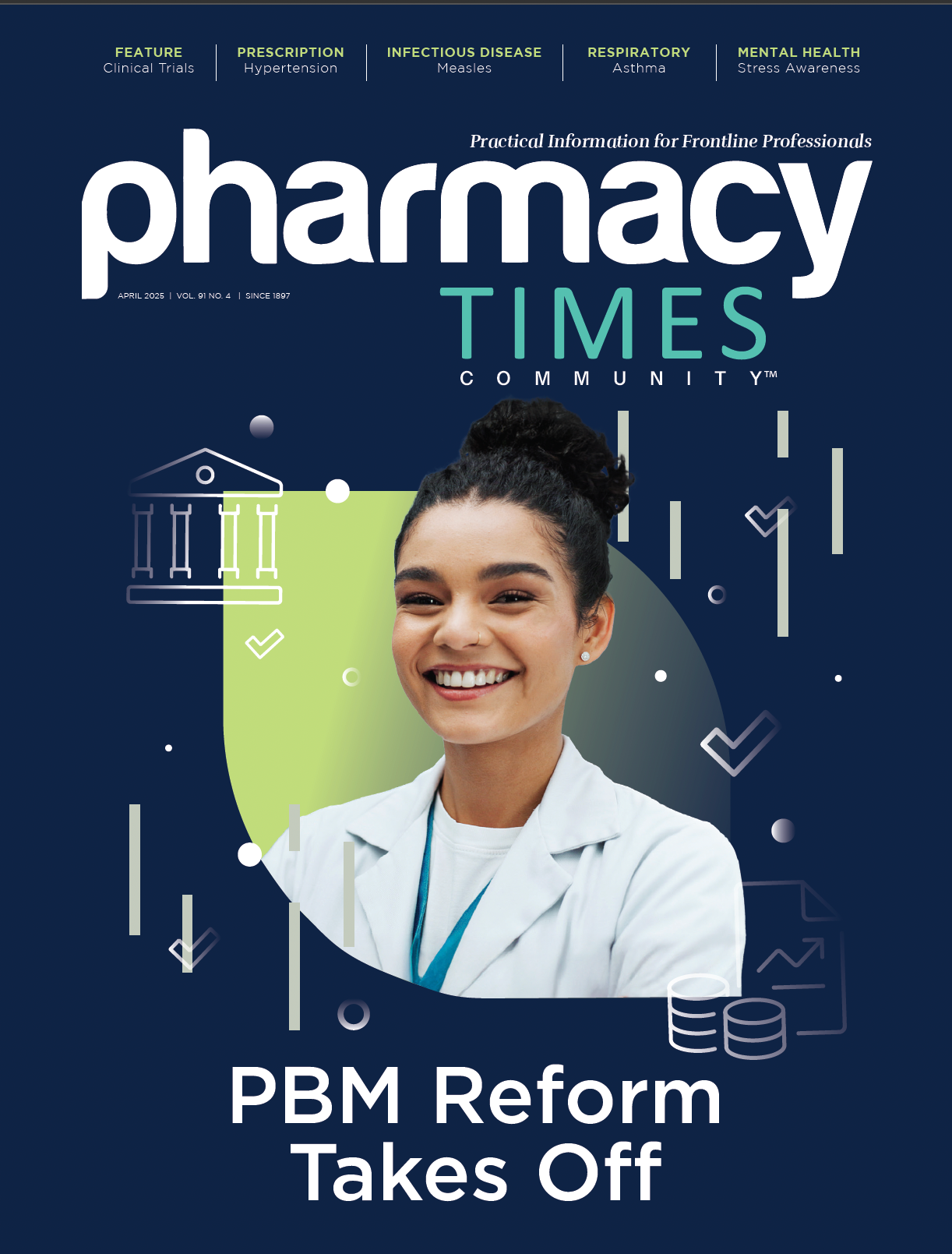Commentary
Article
Pharmacy Times
National Stress Awareness Month Is Here
Author(s):
Pharmacists can perform MTM consultations and provide clinical recommendations to the health care team.
April marks National Stress Awareness Month, and pharmacists can become involved through medication therapy management (MTM). Stress can have a negative impact on both mental and physical health, with research showing that mental health disorders, including chronic stress, can affect cardiovascular health.1 Additionally, anxiety is a risk factor for cardiovascular disease.1 Pharmacists play a vital role in stress and anxiety management through MTM.
MTM for Stress and Anxiety
Mental health conditions have increased since the start of the COVID-19 pandemic.2 Pharmacists can play an important role as part of the health care team in providing mental health services. One cross-sectional study evaluated how the COVID-19 pandemic affected pharmacists’ roles providing mental health services as part of the primary care team.2 The study also assessed pharmacists’ experiences collaborating with other health care professionals to provide mental health services during the pandemic.2
Image credit: kanvictory | stock.adobe.com

The study consisted of an online survey of 51 pharmacists (with a response rate of approximately 41%) in Ontario, Canada.2 Most of the pharmacists (75%) worked in family health teams. More than 50% of the study participants stated that they experienced changes in their pharmacy roles during the pandemic.2 There was an increase in the use of virtual patient care, including telephone and video calls, to provide mental health services. Pharmacists participated in a variety of mental health activities such as MTM, nonpharmacologic recommendations, referrals, wellness check-ins, and physician consultations.2 Pharmacists also collaborated with a variety of mental health professionals, such as psychiatrists, nurses, and social workers.2
A total of 86% of pharmacists in the survey reported that patients indicated their mental health had worsened since the start of the pandemic in March 2020. Additionally, 84% of pharmacists said patients reported increased anxiety. Pharmacists enhanced their mental health skills through continuing education courses and reviewing journal articles.2 Findings from this study highlight the important role pharmacists play in mental health.
Pharmacists can also experience stress and anxiety as part of their jobs, and the COVID-19 pandemic shed light on this. One cross-sectional study set out to identify changes in burnout and secondary traumatic stress (STS) early in the pandemic compared with 20 months later. A survey was sent to 5 groups within the American Society of Health-System Pharmacists, including groups dedicated to COVID-19, clinician well-being and resilience, new practitioners, inpatient practitioners, and pharmacy practice leaders.3
A total of 1126 health system pharmacists completed the online survey. The average age of the survey participants was 42 years, with a majority of women (approximately 72%).3 Almost half of the participants practiced in a state among the top 10 states with the most cases of COVID-19. Results from the study found that more pharmacists experienced burnout 20 months into the pandemic than at the beginning (69% vs 47.7%; P < .001).3
The Professional Quality of Life Scale was used to assess for burnout and STS. According to the results, more pharmacists were identified with a moderate to high likelihood of burnout (83.8% vs 65.3%; P < .001) and a moderate to high probability of STS (63.2% vs 51.4%; P < .001) in the 20-month group compared with the early group.3
The data clearly demonstrate the crucial role pharmacists play in addressing stress and anxiety, both in patients and within their profession. From providing vital MTM and mental health services to navigating the challenges of increased burnout during the pandemic, pharmacists have proven to be essential health care providers. Their adaptability in using virtual care, collaborating with other professionals, and actively seeking continuing education highlights their commitment to patient well-being and their resilience.
MTM Spotlight
In an email interview with Pharmacy Times, Christina Fontana, PharmD, CEO of The Pharmacist Coach, discussed how she helps pharmacists who are experiencing stress and anxiety. In addition to being a pharmacist, Fontana is a health and business coach, speaker, and author.
“Many of the pharmacists I work with struggle with stress and anxiety. Often, the topical symptom they experience is stress; however, there are deeper mental and emotional patterns at play,” Fontana said.
She added that there are a variety of factors involved, including people-pleasing behaviors, perfectionism, and overthinking. Fontana teaches her clients using a variety of techniques, such as hypnosis, meditation, and breathwork. Fontana also discussed strategies for pharmacists to raise awareness about stress.
“Educate patients about the link between stress and their disease states such as hypertension, diabetes, migraines, and other chronic conditions that are exacerbated by stress. Pharmacists can empower patients to adapt simple lifestyle changes that can help them manage stress. Movement, meditation, and stress management techniques like box breathing are a few examples,” Fontana said.
Other tips Fontana recommended were apps such as Calm or Insight Timer, and proper nutrition. Breathwork, journaling, and progressive muscle relaxation are a few top counseling points for patients to manage stress and anxiety.
REFERENCES
1. Levine GN, Cohen B, Commodore-Mensah Y, et al. Psychological health, well-being, and the mind-heart-body connection: a scientific statement from the American Heart Association. Circulation. 2021;143(10):e763-e783. doi:10.1161/CIR.0000000000000947
2. Ashcroft R, Mathers A, Gin A, et al. Pharmacists’ role and experiences with delivering mental health care within team-based primary care settings during the COVID-19 pandemic. Int J Pharm Pract. 2024;32(2):156-163. doi:10.1093/ijpp/riad086
3. Mohammad RA, Jones AM, Clark JS. Changing patterns of the prevalence of burnout and secondary traumatic stress in health-system pharmacists throughout the COVID-19 pandemic. J Am Coll Clin Pharm. 2022;5(7):674-681. doi:10.1002/jac5.1632

Newsletter
Stay informed on drug updates, treatment guidelines, and pharmacy practice trends—subscribe to Pharmacy Times for weekly clinical insights.






